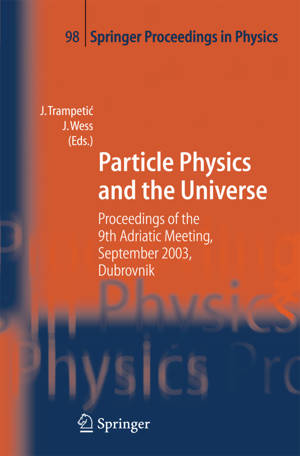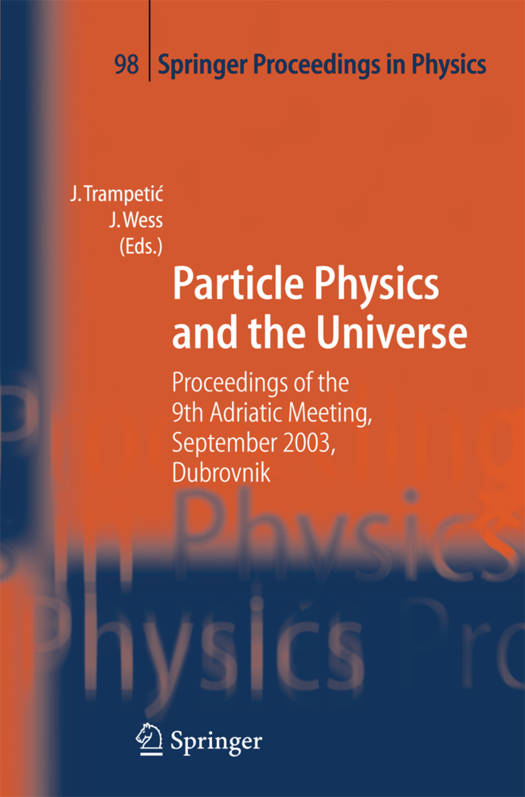
- Retrait gratuit dans votre magasin Club
- 7.000.000 titres dans notre catalogue
- Payer en toute sécurité
- Toujours un magasin près de chez vous
- Retrait gratuit dans votre magasin Club
- 7.000.0000 titres dans notre catalogue
- Payer en toute sécurité
- Toujours un magasin près de chez vous
Particle Physics and the Universe
Proceedings of the 9th Adriatic Meeting, Sept. 2003, Dubrovnik
210,95 €
+ 421 points
Description
The Adriatic Meetings have traditionally been conferences on the most - vanced status of science. They are one of the very few conferences in physics aiming at a very broad participation of young and experienced researchers with di?erent backgrounds in particle physics. Particle physics has grown into a highly multi-faceted discipline over the sixty years of its existence, mainly because of two reasons: Particle physics as an experimental science is in need of large-scale laboratory set-ups, involving typically collaborations of several hundreds or even thousands of researchers and technicians with the most diverse expertise. This forces particle physics, being one of the most fundamental dis- plines of physics, to maintain a constant interchange and contact with other disciplines, notably solid-state physics and laser physics, cosmology and - trophysics, mathematical physics and mathematics. Since the expertise necessary in doing research in particle physics has become tremendously demanding in the last years, the ?eld tends to organize purely expert conferences, meetings and summer schools, such as for detector development, for astroparticle physics or for string theory. TheAdriaticMeetingthroughitsentirehistoryhasbeenaplaceforest- lishing exchange between theory and experiment. The 9th Adriatic Meeting successfully continued this tradition and even intensi?ed the cross-discipline communication by establishing new contacts between the community of c- mologists and of particle physicists. The exchange between theorists and - perimentalists was impressively intensive and will certainly have a lasting e?ect on several research projects of the European and world-wide physics community.
Spécifications
Parties prenantes
- Editeur:
Contenu
- Nombre de pages :
- 495
- Langue:
- Anglais
- Collection :
- Tome:
- n° 98
Caractéristiques
- EAN:
- 9783642424113
- Date de parution :
- 16-11-14
- Format:
- Livre broché
- Format numérique:
- Trade paperback (VS)
- Dimensions :
- 156 mm x 234 mm
- Poids :
- 707 g

Les avis
Nous publions uniquement les avis qui respectent les conditions requises. Consultez nos conditions pour les avis.





